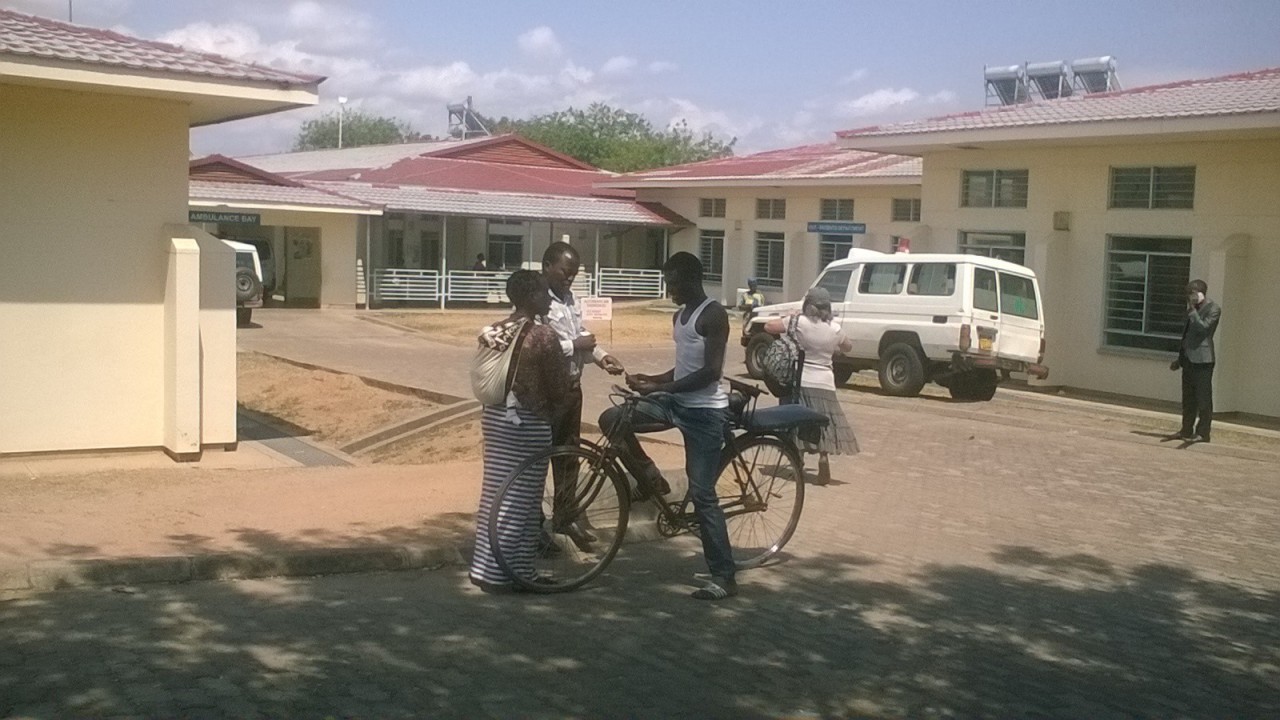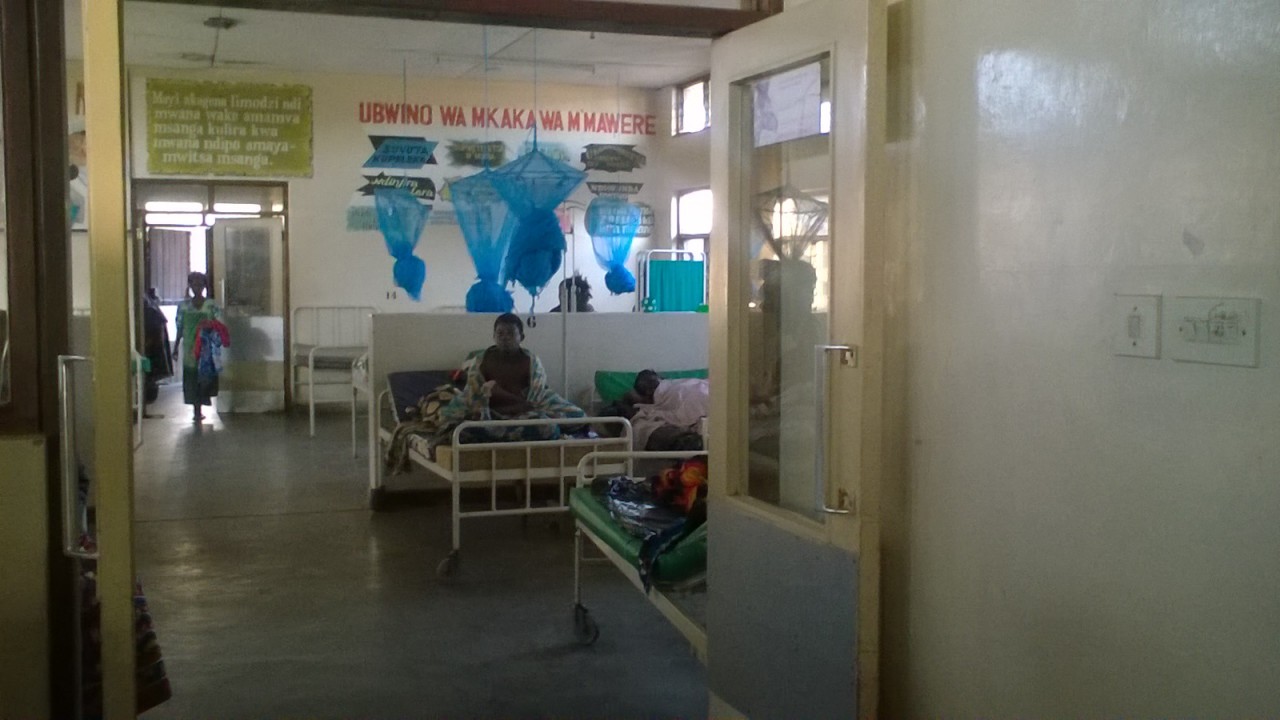Delayed provision of services in hospitals is a barrier to quality maternity care
By Professor Ellen Chirwa
In 2017 a team from Kamuzu College of Nursing, University of Alberta, and AMREF Health Africa implemented research to assess the quality of maternity care services that mothers received at Nkhotakota District Hospital, Ntchisi District Hospital, and Matawale Health Centre in Malawi. We collected information by observing and interviewing health care personnel.
One of the Study Sites
One day, at around 11 am, I walked into a maternity ward and found a very sick woman, Nabanda* (real name withheld), on her bed. Nabanda looked young, probably in her late 20s. She had breathing difficulties and hence was on oxygen. Nabanda looked distressed. I noticed there was a breathing monitoring machine attached to her, but when I looked closely, the recordings were static. The device was not functional. On Nabanda's bedside were her husband and a woman carrying her baby.
I asked the nurse in the ward about Nabanda's situation. The nurse explained that Nabanda had delivered a baby through C-section seven days earlier and had developed complications from the surgery. The nurse further explained that the doctor had seen Nabanda at 8 am that day who prescribed pain killers and hypertension. The doctor had also ordered that an abdominal X-ray is done to assess the extent of her complications, but it had not been done. Unfortunately, the hospital's mobile x-ray unit was faulty at the time.
The nurse was helpless; she did not know what to do because Nabanda's condition was deteriorating. They tried to reach the doctor, but he was engaged with other clients. The nurse and the clinical officer in charge knew the hospital could not provide the urgent care Nabanda needed, but they could not refer her without the doctor's permission.
Eventually, at around 4 p.m that day, the doctor referred Nabanda to a higher-level health facility which was 200 kilometers away. In the midst of preparations for the travel, theClinician confided in me that his current position was difficult as he had no decision making power. He compared his current experience with his past and said when he was in charge of a health center, he could make referral and treatment decisions, and this would ensure patients receive timely life-saving services.
While the preparations for referral were going on, the issue of consent also came up. As the husband had stepped out when the clinician informed other family members that she needed to be transferred to another health facility, they could not provide their consent.
The relatives said: "We need to talk to her husband to get consent."
After all the huddles, Nabanda left the local hospital at around 6 pm. Her condition had become worse. This example highlights some of the challenges that women face while accessing maternal and child health services in the Malawian health facility.
Since the call to action to safe motherhood in 1987, governments have continued to implement various interventions to improve maternal health at community and hospital levels. The three delays model developed by Thaddeus and Maine is the framework used to evaluate factors contributing to delayed timely maternity care. These are 1) delay in deciding to seek care; 2) delay in reaching a healthcare facility; and 3) delay in receiving care at the healthcare facility.
Nabanda experienced delay in receiving timely care due to three factors: (1) lack of functional equipment to establish cause of illness; (2) delayed referral authorization; and (3) delayed consent to referral by the guardians. The effects of the delays are not taken into consideration as one of the hospital managers commented:
"It's us people who are in offices that are very powerful in decision making. Even though the clinician knew for sure that this woman was supposed to be referred; he couldn't do that without our authorization.
The strides that Malawi has made in improving maternal care can stagnate if mothers fail to receive timely care while under the supervision of health care personnel. Financial resources for health facilities are critical to ensure the availability of equipment to assist in establishing the causes of illnesses. Procedures that restrict which officers can authorize referral of patients from one health facility to another are implemented to reinforce control measures and minimize abuse of resources. However, such procedures should provide clear course of action when responsible officers are not available.
Communities also need to be educated on health systems processes to allay fears among patients when they are transferred from one level of care to another. Audits need to be consistently performed to identify, and correct practices that contribute to delayed timely care and compromise the quality of maternal care that women receive.
Janet Mambulasa, Madalitso Tolani, Patrick Patterson, Zubia Muntaz from Kamuzu College of Nursing, Amref Health Africa, Malawi, University of Alberta respectively contributed to this article.
Acknowledgment
This work was carried out with the aid of a grant from the Innovating for Maternal and Child Health in Africa Initiative- a partnership of Global Affairs Canada (GAC), the Canadian Institutes of Health Research (CIHR) and Canada's International Development Research Centre (IDRC).




